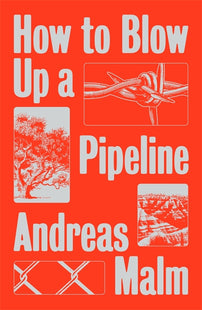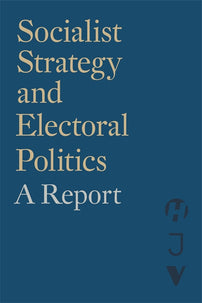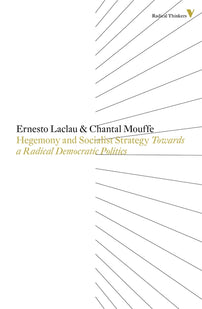For a Neo-Leninism
There's no question that we're living in a moment of ecological crisis precipitated by capitalism's insatiable drive to expansion, but how should the left organise itself in the fight to prevent ecological collapse? Frédéric Lordon argues that the left must adopt a neo-Leninist position in order to develop and maintain a strategic, macroscopic objective in opposition to capitalism.

NB: This text was originally published by ACTA Zone.
The following text is a reprint of an intervention made on the occasion of a debate with Andreas Malm, organised by ACTA, Extinction Rébellion (PEPS) and the bookshop Le Monte-en-l’air (6 June 2021), to whom I am grateful for having made this meeting possible. – Frédéric Lordon.
As I am much less knowledgeable than Andreas about ecology, I will speak about something else, believing our two interventions will be more complementary than contradictory. In any case, they are unlikely to be contradictory. I think that in reality we have a great convergence of views on at least three things – and important ones at that! The first is where to start from; the second is where to go; and the third (insofar as we can answer this) is how to get there.
Where to start, if not from the fact of the planetary emergency, which incriminates capitalism without appeal, and sets the only consistent political objective as getting out of it, overthrowing it? Here agreement is easily reached between ‘us’ – the ‘we’ of the radical left, or the emancipatory left, in short the anti-capitalist left. Then the difficulties arise: where to go, how to get there? This is where the differences begin. Let me say, right away, that neither Andreas nor I are in a position to give any clear and detailed answers to these questions – which is probably all to the good. It seems to me that we both have enough of an idea of the problem to be able to agree on essentials, namely a certain approach to it, an approach, as I said, that raises disagreement on the Left – a disagreement that is old but constantly updated and invested with new content. If we have to give a name to this approach, I would call it neo-Leninism. Since I can’t talk about ecology, I would like to try to clarify what we mean by neo-Leninism today.
Andreas talks about ‘war communism’ in one of his books. We hope no reader will be foolish enough to take the expression at face value – images of rifles with bayonets and caps with red stars. What meaning for our time can we give to the idea of war communism? Simply, the sense of the vital urgency of an anti-capitalist line, the sense of an anti-capitalist line as an planetary emergency. Neo-Leninism is then the position that is built from the idea of a war communism redefined in this way.
[book-strip index="1" style="display"]But how can we thwart the reflex that triggers cries of horror as soon as the word ‘Leninism’ is uttered? And not just on France Inter, Arte or Télérama; on the Left as well. The centenary of 1917 saw a rush of books explaining that Leninism meant the Cheka, Kronstadt, the Moscow trials and the Gulag. That this is what the USSR was, everyone knows. All these things have been meditated on long and deeply, ever since 1950s Trotskyism. So what’s the point of pushing at a door already so wide open? No one wants it to happen again, no one wants to try it again. As with ‘war communism’, therefore, it is necessary to make the minimal effort of detaching oneself from accepted images, and seek the ‹ay to a historical updating for our own time – there is hardly any other way than that of definition or conceptualisation if we want Leninism to be understood today as something other than what was done in Russia in 1917, on Lenin’s initiative and under his name.
Detached from the historical conditions of its appearance in order to draw out its generality, a possible definition of neo-Leninism could be as follows: Leninism consists of 1) an objective, that is 2) macroscopic, and 3) an explicit imperative of strategic co-ordination in an adequate form. I hardly need to emphasise the enormity of the problems that this ‘adequate form’ contain. The important point here is that one imperative leads to another. The imperative of strategic co-ordination leads to the imperative of thinking about its proper form. I hasten to say that I don’t have any idea about this. My time is limited, that’s fine: it will allow me to avoid talking about it...
But there is already something to be done with the first two points. Firstly, Leninism consists of an objective. It’s hard to believe that we feel obliged to say something so trivial. And yet we have to. Because we live in a rather strange political era on the Left, where the assertion of an objective is no longer at all obvious, and even perceived as something to be distrusted. There is a whole intellectual and political current in France, very dynamic and very interesting, but who are hostile to any objective, and conceive of politics only in an intransitive sense. That is, movement for movement’s sake. Above all, let no one dare come and give it direction.
Where does this distrust come from? It comes from the fact that one direction can hide another. From direction understood as an indication of desirable policy, there can always emerge direction as command, taking operations in hand, a perilous moment indeed. The signifier ‘Leninism’ has remained stuck to this second meaning of direction, the direction of leaders, but we have forgotten that in Leninism there was also the first meaning, direction in the sense of desirable, direction that says what we want to do and where we want to go.
Here I’m going to quote two authors. The first is Daniel Bensaïd, who spoke of the need for ‘a strategic hypothesis drawn from past experiences, and serving as a plumb line without which action becomes aimlessly dispersed’. The second author is a certain Andreas Malm: ‘The old Trotskyist formula that “the crisis of humanity is the crisis of revolutionary leadership” needs to be updated. The crisis is the absence, the total, gaping absence, of direction.’
[book-strip index="2" style="display"]I might as well say straight out: I profoundly agree with both these statements. I think that no struggle against capitalism is possible without a powerful political proposal, that is to say, a general and articulated one, capable of countering the capitalist proposal. And I think that apologias for intransitivity are a passport to political impotence. So here is the first line of fracture on the Left. It passes between, on the one hand, the neo-Leninist position which maintains the imperative of a direction, that is to say, a proposal, as constitutive of an anti-capitalist politics, and, on the other hand, an idea of intransitivity which I fear is doomed to end up as anti-politics.
If we want to do something other than sadly contemplate this fracture, I think we have to recover an intellectual gesture that has been lost. The dialectical gesture. Here I don’t mean dialectic in its Hegelian-Marxist version, as a grandiose process of self-transcending and synthesis. I am thinking of dialectic as an objective antagonistic tension between opposites, a tension unresolvable in a synthesis, and which therefore calls for the necessity of its accommodation in a particular form. Another example: without a strategic line, without a minimal organisation to serve this, there will be no revolutionary process. There will only be insurrectional outbreaks, and they will be defeated. However, direction as a strategic line coordinated in a minimal organisational form can always give rise to direction as command, that is to say as a separation, and finally as a confiscation. This is true. And when I say ‘this’, I mean both. Both are true. So you have to deal with both. You have to hold together both, and hold them in a form that is forever imperfect and always subject to revision.
This is the non-Hegel-Marx version of dialectics, a version stripped of any promises of reconciling synthesis, and leaving only the imperfect possibilities of the accommodation of opposites, the regulation of their co-presence, in institutional constructions. From the fact that the antinomies to be regulated are irreducible, not surpassable in some ‘transcendence’, it follows that the institutions that accommodate them are essentially imperfect, which is why they require an indefinite process of revision, that is to say, a permanent questioning and reworking. I point this out in passing, but it is no different from Castoriadis’ conception of democracy. Democracy is not the combination of electoral salad and ‘free press’ that we are regularly sold. Democracy is the capacity of a political body to establish its own institutions and keep them under control in order to be able permanently to rework them. This is why, as soon as we see a ‘democratic’ wannabe explaining to us that ‘we must defend the institutions’, we know who we are dealing with – a fraud. ‘Defence of the institutions’ is not a democratic idea, it’s an idea for the police, for the likes of Paris Prefect of Police Didier Lallement or Macron; it’s the idea that was stuffed into the CRS when they were sent to smash the Gilets Jaunes: ‘you are the last bastion of the institutions’, ‘you have to defend the institutions’, formulae par excellence of anti-democracy.
In the first place, then: restore the rights of the objective as constitutive of politics. But neo-Leninism goes far beyond this minimal requirement. If it affirms an objective, it also affirms its macroscopic character. This means that communism can only be conceived on the scale of a social formation, i.e. a large human group. Neo-Leninism is certainly not uninterested in local experiences, but it rejects their exclusivity as an organising principle. It is probably here that the prefix ‘neo’ is most useful. It’s hard not to admit that ‘vintage’ Leninism didn’t give a fig about local autonomies – when it wasn’t actually trying to crush them. Among the painful lessons of historical Leninism, the annihilation of all autonomous local life was one of the disastrous correlates of totalitarian state centralisation – a kind of model of what not to do again. A neo-Leninism will therefore be duty-bound to take an interest in local experiences, not out of polite respect for curiosities but as a source of its own vitality. Then it will recognise its rational duty to make them prosper as much as it can. For all that, it views a social formation as something other than an archipelago of communes. Why? Because only a group of sufficient size and integration is capable of sustaining a minimally necessary degree of division of labour.
[book-strip index="3" style="display"]Of course, it will be a degree considerably less than the capitalist division of labour – the planetary emergency imposes this – but nevertheless much higher than what a communalist division of labour could support. Exiting capitalism, in other words, does not mean dismissing the category of mode of production. Communism will have to be a mode of production, quite simply because humans will always have to collectively produce the means of their material life, and to produce the means of this production. And this is what a mode of production is all about. Communes, local experiments, fit perfectly into this mode of production and its division of labour. But they are by no means the whole of it.
And here is the second dividing line within the Left: after the one between the assertion of an objective and the anti-politics of intransitivity, or, to put it another way, between positing the need for direction and the rejection of direction altogether. This second dividing line separates, on the one hand, the global macroscopic alternative proposal and, on the other, the self-sufficiency of the localist principle of autonomy. And just as intransitivity turns into impotence, so the exclusivity of localism turns into escapism. Escapism is a very strong temptation for today’s left: we desert, we leave capitalism behind us – we withdraw into ourselves. But precisely, and all tautology aside: if we leave capitalism behind, capitalism still remains there behind us.
I’ve come to think that escapism has only been successful as a default solution, a solution of resignation in the face of the enormity of the obstacle. That is to say, the only solution left when the idea of overthrowing capitalism has become established in people’s minds as a radical impossibility – everyone is familiar with Fredric Jameson’s phrase – in fact, when the project is abandoned. But we know that the situation on this planet is such that avoiding it by desertion is no longer an option. And we also know that the charm of life in huts, or in trees – because we hear a lot of poetry about all these things – this charm does not make a mode of production. To put it much more prosaically: if you fall out of the tree and break a leg, you’re not going to get away with a moss poultice or a root decoction. You’ll end up in the local hospital, in an imaging machine that will probably be branded General Electric.
The question is whether we leave the imaging to General Electric or not. Escapism leaves no choice. Communism, for its part, says no. And that is the macroscopic objective of a mode of production. But a mode of production which brings the question of the productive forces into an entirely new historical regime. Neo-Leninism is certainly not disinterested in the question of the productive forces. It knows these will have to be maintained at a certain level, that it is not just friends of trees that are needed but also engineers, technicians and scientists. But it also knows what material production has done to the planet up to now, and what extremity it has taken this to. Neo-Leninism can therefore be conceived without contradiction as a communism of the productive forces that is radically hostile to productivism. Productivism is production that has entered a regime of intransitivity – production for production’s sake – and a regime of absolutism – material production absorbing the totality of human activity. This is why, if it is a mode of production, neo-Leninism in no way loses sight of the new constraints and new purposes around which it is organised: the constraints of the planetary situation, and the purposes of the development of the non-material powers of human life.
Translated by David Fernbach













